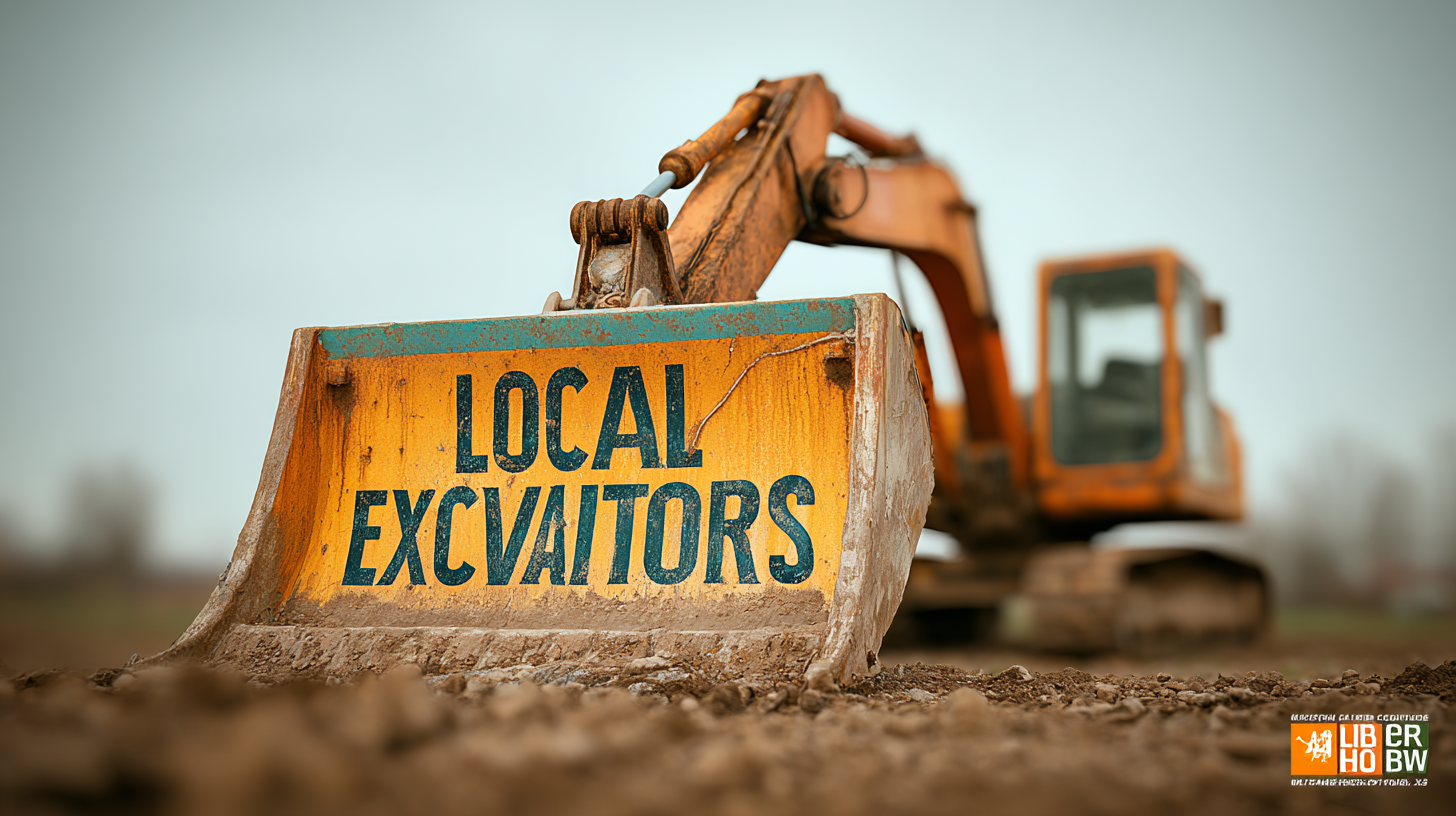Leave Your Message
- Phone
- E-mail
- Whatsapp
In today's rapidly evolving construction landscape, the demand for reliable and efficient equipment is paramount, particularly when it comes to Local Excavators. According to the Global Construction Equipment Market report by Research and Markets, the excavators market is expected to exceed $64 billion by 2025, highlighting their critical role in various projects. As the industry seeks to optimize performance while managing costs, exploring diverse alternatives to the best Local Excavators is essential. These alternatives not only offer unique features tailored to specific project needs but also align with the ethos of "精工细造,中国制造,服务世界", embodying the principles of precision manufacturing and global service.

By evaluating a range of options, construction professionals can ensure they are equipped with the best tools for success, ultimately driving efficiency and innovation in their projects.
When embarking on an excavation project, selecting a reliable local excavator is crucial for ensuring efficiency and quality. Key industry standards to consider include licensing, insurance, and equipment quality. According to the National Excavation Association, approximately 30% of excavation projects experience delays due to subpar contractor performance. Therefore, verifying that your chosen excavator meets all local regulations and holds the necessary certifications is essential.
Tips: Always request proof of insurance and licensing before committing to a contract. Additionally, inquire about their equipment's age and maintenance history. Equipment that is well-maintained and up-to-date tends to perform better and can mitigate risks associated with project delays.

When evaluating different types of excavators for your project, it's crucial to consider factors such as project size, soil conditions, and the specific tasks you need to accomplish. According to a report by the International Construction Market, the demand for compact excavators, in particular, is on the rise, with growth projected at an annual rate of 4.2% through 2025. These smaller machines offer versatility on tight job sites, making them ideal for urban construction and landscaping projects.
Tip: Always assess the weight and dimensions of the excavator relative to the job site. Compact excavators can navigate through confined spaces while larger track or wheeled excavators are better suited for heavy-duty tasks, such as site preparation or landscaping on expansive properties.
Another critical aspect is the choice between hydraulic and mechanical excavators. Hydraulic excavators are known for their efficiency and effectiveness in various applications, accounting for nearly 75% of the market share. Conversely, mechanical excavators, while less common, can be beneficial for specific niche tasks. Understanding your project requirements will guide you in selecting the right machine type to optimize performance and reduce delays.
Tip: Before making a decision, evaluate the availability of attachments for each excavator type. The right attachments can significantly enhance the excavator's functionality, enabling it to handle multiple tasks and improving overall project efficiency.
When it comes to excavation projects, finding the right equipment can often strain your budget. Fortunately, there are numerous cost-effective alternatives to traditional excavators that can meet your project needs without breaking the bank. Mini excavators, for instance, are an excellent choice for smaller jobs due to their maneuverability and efficiency. They consume less fuel and can access tight spaces, making them ideal for residential work or landscaping projects.
Another budget-friendly option includes skid steer loaders equipped with excavation attachments. These versatile machines can handle various tasks, from digging to grading, offering a multi-functional solution at a lower cost. Additionally, consider renting equipment instead of purchasing. Rental services allow you to access high-quality machinery tailored to your project's specific requirements, helping to manage expenses while ensuring effectiveness. By exploring these diverse alternatives, you can achieve your excavation goals efficiently and economically.
In the evolving landscape of construction and landscaping, enhancing project efficiency is paramount. Innovative excavation techniques are increasingly gaining traction, offering solutions that not only save time but also minimize environmental impact. For instance, the adoption of precision excavation methods, such as 3D modeling and GPS-guided machinery, allows operators to achieve remarkable accuracy. This leads to reduced over-excavation, less material wastage, and ultimately, a more streamlined project timeline.
Moreover, embracing alternative excavation practices like hydrovac and trenchless technology provides an edge in challenging urban environments. Hydrovac excavation utilizes high-pressure water to liquefy soil, which is then vacuumed away, ensuring minimal disruption to surrounding areas. This method is particularly beneficial for projects near existing utilities, as it reduces the risk of accidental damage. Trenchless excavation, on the other hand, enables the installation of underground utilities without extensive surface disruption, promoting both efficiency and environmental preservation. By integrating these innovative techniques, project managers can navigate complexities with ease and ensure that their excavation needs are met without compromising on quality or sustainability.

When it comes to selecting local excavation experts for your project, the process can be overwhelming given the variety of choices available. First and foremost, it’s crucial to define your project requirements clearly. Whether you're looking for residential excavation, commercial work, or specialized services, having a detailed scope will help you communicate effectively with potential contractors. Take the time to research and compile a list of local excavators who have experience relevant to your specific needs. Online reviews, testimonials, and case studies can offer valuable insights into their capabilities and past performance.
Collaboration with your chosen excavation expert is vital for ensuring that the project runs smoothly. Once you have selected a contractor, establish open lines of communication right from the start. Discuss timelines, budget constraints, and any site-specific challenges that may arise. Regular check-ins during the project can help you stay updated on progress and address any concerns promptly. Remember to trust their expertise while still maintaining an active role in the decision-making process. By fostering a cooperative relationship, you can not only enhance the efficiency of the work but also ensure that the final outcome meets your expectations.
